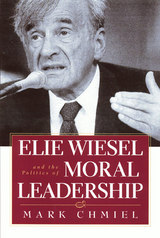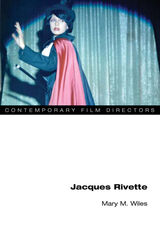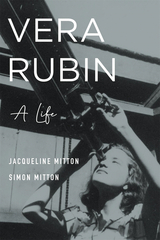
Edward Albee was a giant in American theater, in the same pantheon with Arthur Miller, Eugene O’Neill, and Tennessee Williams. His prolific career included three Pulitzer Prizes and the 2005 Lifetime Achievement Tony Award.
Albee continued producing major works for the theater into his eighties, including a prequel to The Zoo Story, which shocked the country when it first appeared in 1958—and his plays have seen major revivals on and off Broadway in recent years. Yet even with this resurgence of popularity, no up-to-date treatment of his plays is currently in print.
With engaging discussions of his most famous plays, such as Who’s Afraid of Virginia Woolf and Three Tall Women, as well as his lesser known works, this essential guide reveals the heart of Albee’s drama, highlighting the themes of sex, death, loneliness, and time that have occupied the playwright during his more than fifty years in the theater.
Toby Zinman is the theater critic for the Philadelphia Inquirer. She has written for numerous publications, including Variety,American Theater, and Theatre Journal. She is Professor of English at the University of the Arts, Philadelphia.

Mark Chmiel's thoroughly researched and penetrating study is the first book to examine both Wiesel's practice of solidarity with suffering people and his silence before Israeli and American power. Drawing on Edward Herman and Noam Chomsky's studies on "worthy and unworthy victims," the author analyzes Wiesel's initiatives of Jewish and universal solidarity with groups ranging from Holocaust survivors and Russian Jews to Vietnamese boat people and Kosovar refugees.
Chmiel also critically engages Wiesel's long-standing defense of the State of Israel as well as his confrontations and collaborations with the U.S. government, including the birth of the U.S. Holocaust Memorial Museum, the 1985 Bitburg affair with President Reagan, and U.S. intervention in the Balkans.
Throughout, the author probes the nuances and ambiguities of Wiesel's human rights activism and shows the various uses to which his Holocaust discourse has been put, both in the Middle East conflict and in issues involving U.S. foreign policy.
Elie Wiesel and the Politics of Moral Leadership provides a provocative view of one of the most acclaimed moralists in recent American history and raises important questions about what it means to be a responsible intellectual in the United States.


Anderson provides the context from which Selzer’s writing grows and a concept of language adequate to his purposes and accomplishments. He takes a careful look at Selzer’s writing to demonstrate that these abstract considerations do tell us why a surgeon would write. The works Anderson examines are "Jonah and the Whale" (an important early short story) and the first three essays in Mortal Lessons. These examples show the reader exactly how the symbols of literature interact directly with the world and the everyday communications of both writer and reader. According to Anderson, Mortal Lessons is also Selzer’s most artistic statement of his own sense of why and how he became a writer.
Selzer’s books include Rituals of Surgery, Mortal Lessons, Confessions of a Knife, Letters to a Young Doctor, and Taking the World in for Repairs.

A Physics Today Best Book of the Year
The first biography of a pioneering scientist who made significant contributions to our understanding of dark matter and championed the advancement of women in science.
One of the great lingering mysteries of the universe is dark matter. Scientists are not sure what it is, but most believe it’s out there, and in abundance. The astronomer who finally convinced many of them was Vera Rubin. When Rubin died in 2016, she was regarded as one of the most influential astronomers of her era. Her research on the rotation of spiral galaxies was groundbreaking, and her observations contributed significantly to the confirmation of dark matter, a most notable achievement.
In Vera Rubin: A Life, prolific science writers Jacqueline Mitton and Simon Mitton provide a detailed, accessible overview of Rubin’s work, showing how she leveraged immense curiosity, profound intelligence, and novel technologies to help transform our understanding of the cosmos. But Rubin’s impact was not limited to her contributions to scientific knowledge. She also helped to transform scientific practice by promoting the careers of women researchers. Not content to be an inspiration, Rubin was a mentor and a champion. She advocated for hiring women faculty, inviting women speakers to major conferences, and honoring women with awards that were historically the exclusive province of men.
Rubin’s papers and correspondence yield vivid insights into her life and work, as she faced down gender discrimination and met the demands of family and research throughout a long and influential career. Deftly written, with both scientific experts and general readers in mind, Vera Rubin is a portrait of a woman with insatiable curiosity about the universe who never stopped asking questions and encouraging other women to do the same.
READERS
Browse our collection.
PUBLISHERS
See BiblioVault's publisher services.
STUDENT SERVICES
Files for college accessibility offices.
UChicago Accessibility Resources
home | accessibility | search | about | contact us
BiblioVault ® 2001 - 2024
The University of Chicago Press









